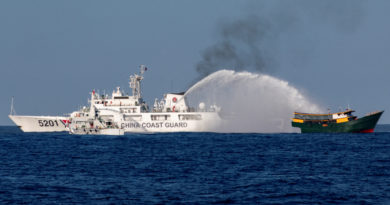ASEANEWS-US ELECTION | CAMBODIA: Opinion | The Impact of a Second Trump Presidency on Cambodia, Challenges and Opportunities
.
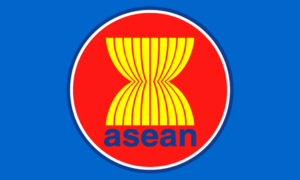

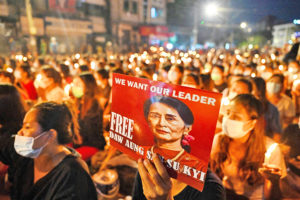
FREE ASEAN –
FREE MYANMAR/CAMBODIA/THAILAND /LAOS
FREE Aung San Suu Kyi
.
.
David VAN
 The re-election of Donald Trump as U.S. President introduces a complex array of challenges and potential benefits for Cambodia. As the global landscape evolves, the Kingdom must navigate its relationship with a reinvigorated “America First” administration, which may push for U.S.-centered trade policies and a confrontational stance toward China’s influence. This shifting environment has implications across multiple spheres—economics, foreign relations, and human rights—and may redefine Cambodia’s positioning in Southeast Asia and beyond.
The re-election of Donald Trump as U.S. President introduces a complex array of challenges and potential benefits for Cambodia. As the global landscape evolves, the Kingdom must navigate its relationship with a reinvigorated “America First” administration, which may push for U.S.-centered trade policies and a confrontational stance toward China’s influence. This shifting environment has implications across multiple spheres—economics, foreign relations, and human rights—and may redefine Cambodia’s positioning in Southeast Asia and beyond.
Historical Context of Cambodia-U.S. Relations

Cambodia’s relationship with the United States has traversed a turbulent historical path, from Cold War alignments to fluctuating diplomatic and economic connections. In the 1960s, Cambodian troops trained by the U.S. assisted American airmen downed by North Vietnamese forces. However, subsequent actions, like U.S. bombing campaigns during the Vietnam War, strained the relationship. After the Khmer Rouge regime’s fall, the United States initially viewed the new Cambodian leadership with skepticism, limiting diplomatic support. Relations gradually improved post-1991, with the U.S. fostering economic ties and, in the 1990s, granting Cambodia trade preferences that catalyzed a period of rapid export growth, particularly in garments.
Today, Cambodia’s economy depends on strong trade ties with the United States, but also increasingly on Chinese investment. This dual reliance presents a dilemma in the face of potential U.S.-China tensions under Trump’s leadership. If the United States withdraws or modifies its engagement in Southeast Asia, it could shift the balance of power in favor of China, forcing Cambodia to recalibrate its foreign policy.

.Ads by:
Key Challenges Under a Second Trump Presidency
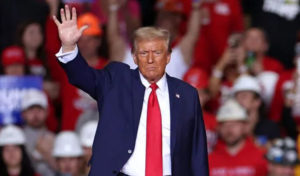
One of the primary challenges is the likelihood of heightened U.S.-China tensions, which Trump’s previous term underscored through trade tariffs and military posturing in the South China Sea.
Cambodia, heavily invested in the Belt and Road Initiative, faces the risk of being caught between its close ties with China and pressures from the U.S. to reduce Chinese influence. As the Trump administration promotes economic self-sufficiency and limits foreign aid, Cambodia could lose vital support for its development projects, especially in healthcare and education aside from those projects whereby funding was already committed. Such cuts may worsen conditions in rural areas, where U.S. aid plays a critical role.
Another pressing issue relates to human rights and democracy. Historically, the U.S. has championed democracy and civil liberties in Cambodia, aligning with various NGOs and advocating for freedoms. However, Trump’s foreign policy has shown a more transactional, interest-based approach, which often deprioritizes human rights in favor of economic and strategic objectives.
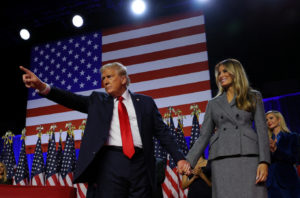
Ads by:
Opportunities for Economic Growth and Trade Diversification

Despite these challenges, the “America First” policy could also present economic opportunities for Cambodia. Trump’s preference for bilateral trade agreements may allow Cambodia to establish favorable trade terms, expanding markets for Cambodian textiles, agriculture, and other exports. Given the U.S. withdrawal from the Trans-Pacific Partnership (TPP), Cambodia could fill a gap for American companies seeking to diversify their supply chains outside China.
Moreover, Trump’s stance on reducing business regulations may align with Cambodia’s aspirations to attract foreign investments. With its low labor costs and strategic location, Cambodia could entice U.S. firms looking for alternatives to the Chinese market. Furthermore, Cambodia’s commitment to improving infrastructure may attract investors interested in sectors such as transportation and energy.
Strategic Positioning in ASEAN and the Broader Indo-Pacific
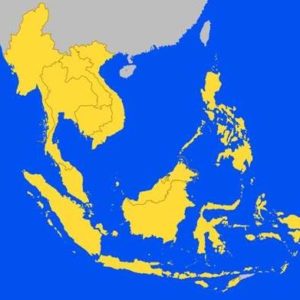
Cambodia’s ASEAN membership provides it with a platform to engage both the U.S. and China diplomatically, potentially securing more favorable trade and development terms. Trump’s focus on counterbalancing China in Southeast Asia might open avenues for Cambodia to benefit from U.S.-backed infrastructure and capacity-building projects aimed at strengthening ties with ASEAN.
These initiatives could foster greater regional integration and support Cambodia’s aspirations to achieve middle-income status by 2030.
Cambodia could also seek to balance its economic dependencies by engaging other ASEAN members in joint initiatives that emphasize regional resilience. ASEAN’s growing influence on global trade and security may serve as a buffer, offering Cambodia a measure of independence from the U.S.-China rivalry.
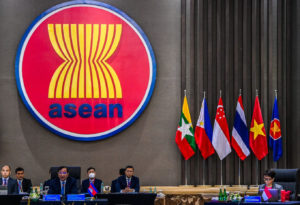
Ads by:
A Balancing Act for Cambodia

A second Trump presidency places Cambodia in a strategic yet precarious position, necessitating careful navigation of U.S.-China relations and regional diplomacy. Cambodia must weigh the risks of relying heavily on China against the potential benefits of closer U.S. trade ties, all while managing the impact on human rights and domestic policies. By strategically aligning itself within ASEAN, leveraging trade opportunities, and enhancing domestic productivity, Cambodia can mitigate the challenges posed by the evolving geopolitical landscape.
For Cambodia, the road ahead is a delicate balancing act. Success will depend on its ability to capitalize on economic opportunities while navigating political pressures and maintaining regional partnerships.

David Van is a business and policy advisor, with over 40 years experience in regional senior management roles for MNCs and development sector in South-East Asia, as well as government relations advisory support, blended finance and private-public partnership conceptualization. The views expressed here are the author’s own.


 Memento Maxima Digital Marketing
Memento Maxima Digital Marketing Ads by:
Ads by: Ads by:
Ads by:









